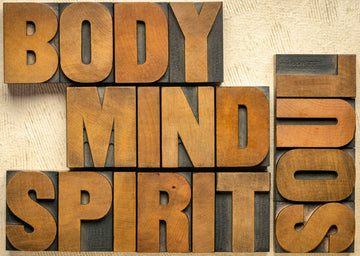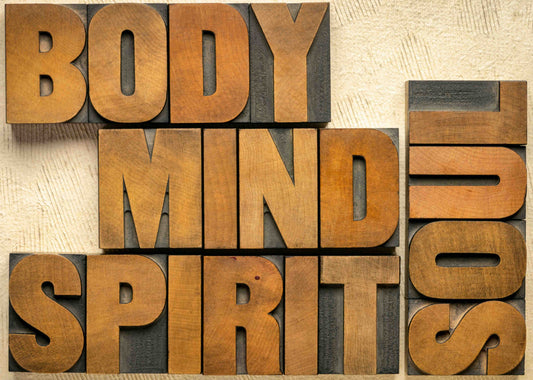Debunking Common Sports Nutrition Myths: Separating Fact from Fiction
Introduction
The field of sports nutrition is full of misconceptions that can lead to ineffective or even harmful practices. With so much conflicting advice available, it’s crucial to distinguish between myths and evidence-based facts. In this article, we’ll debunk some of the most common sports nutrition myths, providing clear, research-backed insights to guide your dietary and supplementation choices.
Understanding the truth behind these myths will help you optimize your performance, recovery, and overall health. Let’s explore these misconceptions and offer practical advice to help you avoid common nutritional pitfalls.
Myth #1: Carbs Are the Enemy
The Myth:
A widespread myth is that carbohydrates are detrimental to your health and will lead to weight gain. This belief is particularly common among those looking to lose weight or improve body composition.
The Truth:
Carbohydrates are a primary energy source, especially during high-intensity exercise. They’re stored as glycogen in muscles and the liver, fueling your workouts. Eliminating carbs can lead to reduced energy levels, impaired performance, and slower recovery.
Evidence:
According to a study in the Journal of the International Society of Sports Nutrition, a high-carb diet supports better performance in endurance athletes and enhances glycogen storage, which is crucial for sustaining energy levels during exercise . Carbohydrates also aid in muscle recovery and repair.
What to Do:
Instead of avoiding carbs, focus on quality sources:
- Complex Carbohydrates: Whole grains (brown rice, quinoa, oats) provide sustained energy.
- Fruits and Vegetables: Bananas, berries, and sweet potatoes offer essential vitamins and quick energy.
Incorporate carbs around your workout times to fuel performance and recovery effectively.
Myth #2: More Protein Equals More Muscle
The Myth:
A common belief is that increasing protein intake is the key to building muscle, with the idea that more protein means more muscle growth.
The Truth:
While protein is essential for muscle repair and growth, muscle development depends on various factors, including overall calorie intake, training intensity, and recovery. Excess protein beyond what the body needs doesn’t necessarily result in increased muscle mass.
Evidence:
Research published in Sports Medicine indicates that a protein intake of 1.6 to 2.2 grams per kilogram of body weight is adequate for muscle growth. Consuming protein beyond this range does not provide additional muscle-building benefits and can lead to wasted calories if not combined with proper training and overall nutrition .
What to Do:
Ensure a balanced diet that includes not just protein but also adequate carbohydrates and fats for energy and recovery. Good protein sources include:
- Lean Meats: Chicken, turkey, and fish for high-quality protein.
- Plant-Based Options: Pea protein, lentils, and beans for vegetarians and vegans.
Aim for a balanced intake of protein throughout the day to support muscle repair and growth.
Myth #3: Supplements Are Necessary for Success
The Myth:
There’s a belief that supplements are essential for achieving fitness goals and improving performance, with many people thinking that without them, significant results are unattainable.
The Truth:
Supplements can support performance and recovery, but they are not a substitute for a well-rounded diet. Whole foods provide a comprehensive range of nutrients that supplements often cannot replicate. Supplements should complement, not replace, a balanced diet.
Evidence:
A review in Nutrients emphasizes that while certain supplements like creatine and caffeine can be beneficial, the impact of a proper diet and training far outweighs the benefits provided by supplements alone .
What to Do:
Prioritize a nutrient-dense diet and use supplements to address specific needs:
- Protein Powders: Useful if you struggle to meet protein requirements through food.
- Creatine: Enhances strength and recovery for high-intensity workouts.
- Electrolytes: Important for hydration during prolonged or intense exercise sessions.
Consult a nutritionist to determine if supplements are appropriate for you and which ones can enhance your dietary intake.
Myth #4: Fasting Before Exercise Burns More Fat
The Myth:
Fasted cardio, or exercising on an empty stomach, is often promoted as a method to increase fat burning and improve fat loss.
The Truth:
While fasted exercise may increase fat oxidation, it does not necessarily lead to greater fat loss. Exercising without eating first can reduce performance and endurance, which can diminish the overall effectiveness of your workout.
Evidence:
A study in the British Journal of Nutrition found that fasting before exercise increases fat oxidation but does not result in significantly greater fat loss compared to eating before exercise . Additionally, fasted training may impair performance, reducing workout intensity and duration.
What to Do:
For optimal performance and energy, eat a small pre-workout meal or snack containing carbs and protein:
- Banana with nut butter
- Oatmeal with berries
- Greek yogurt with honey
If you prefer fasted workouts, ensure you consume a balanced post-exercise meal to support recovery and muscle repair.
Myth #5: You Should Avoid Eating Fat for Better Performance
The Myth:
A common myth is that consuming fat, particularly dietary fat, will negatively impact athletic performance and should be avoided to maintain optimal fitness levels.
The Truth:
Fats are a crucial macronutrient that provides long-lasting energy, supports cell function, and aids in the absorption of fat-soluble vitamins (A, D, E, and K). Eliminating fats from your diet can lead to energy deficits, poor hormone regulation, and impaired overall health.
Evidence:
A review in The American Journal of Clinical Nutrition highlights that dietary fat is essential for athletes, particularly for endurance events where fat becomes a key energy source during prolonged exercise . Healthy fats also play a role in reducing inflammation and supporting joint health.
What to Do:
Incorporate healthy fats into your diet to support performance and recovery:
- Avocados: Rich in monounsaturated fats and nutrients.
- Nuts and Seeds: Provide essential fatty acids and protein.
- Olive Oil: Contains heart-healthy monounsaturated fats.
Aim for a balanced intake of fats, ensuring they make up a portion of your overall calorie intake to support long-term energy needs.
Myth #6: Eating Before Bed Will Lead to Weight Gain
The Myth:
A prevalent belief is that eating late at night or just before bed will lead to weight gain, as the body supposedly stores excess calories as fat during sleep.
The Truth:
Weight gain is determined by overall calorie intake versus expenditure, not the timing of meals. Eating before bed doesn’t inherently cause weight gain as long as your total daily calorie intake aligns with your energy expenditure.
Evidence:
Research published in Obesity has shown that the timing of food intake has less impact on weight gain compared to overall calorie consumption. What matters is the balance of calories consumed versus calories burned over the course of the day .
What to Do:
Focus on maintaining a balanced diet and monitoring your total daily calorie intake. If you’re hungry before bed, choose a healthy, balanced snack that includes protein and fiber:
- Greek yogurt with a sprinkle of nuts
- A small apple with a piece of cheese
- Whole grain toast with avocado
Eating before bed is fine as long as it fits within your daily calorie and nutrient goals.
Conclusion
Dispelling sports nutrition myths is vital for optimizing your performance and reaching your fitness goals. Understanding that carbs are necessary for energy, protein needs to be balanced throughout the day, and fats play a crucial role in overall health can guide you towards better nutritional practices.
Avoid falling for common misconceptions and rely on evidence-based strategies for fueling your workouts and recovery. By focusing on a balanced diet and making informed choices about supplementation, you can enhance your athletic performance and achieve your fitness objectives more effectively.
Stay informed, consult with nutrition professionals, and ensure that your approach to sports nutrition is grounded in science to make the most of your fitness journey.
No comments








comments